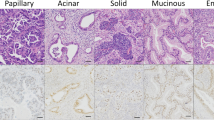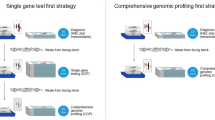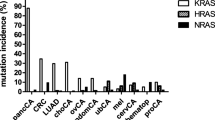Abstract
Genes OGG1 and MUTYH are the two primary genes in Base excision repair pathway. OGG1 hydrolyzes the sugar phosphate backbone and remove the damaged base creating abasic site. MUTYH complements OGG1 as it particularly remove adenine mispaired with 8-oxo-G. Both OGG1 and MUTYH act as a check for the mis-incorporation of bases may be due to damages incurred on DNA. DNA isolation for 326 lung cancer cases and 330 controls was followed by genotyping making use of PCR-RFLP. Logistic regression was done to analyze the risk towards lung cancer. Patients were followed through telephonic conversation. Kaplan meier and Cox-regression were used for survival analysis. OGG1 presented a high risk towards lung cancer (CG: OR = 2.44, p = 0.0003; CG + GG: OR = 1.88, p = 0.0093). On the same lines adenocarcinoma for OGG1 were potent risk factors towards lung cancer (CG: OR = 4.72, p = 0.0002; CG + GG: OR = 3.63, p = 0.0018). Single allelic carriers for MUTYH gene imposed a high risk towards overall lung susceptibility and for all the three histology. Stratified analysis for chemotherapeutic drugs revealed administration of Cisplatin/Carboplatin + Pemtrexed for OGG1Ser 326 Cys showed a better survival (MST CG vs. CC: 9.1 vs. 0.56, p = <0.0001; HR =0.051, p = 0.0025). Whereas, MUTYH Gln324His showed a smaller survival for mutant genotype (CC) (MST CC vs. GG: 4.0 vs. 9.4, p = 0.05; HR = 1.75, p = 0.26). Single allelic carriers for both OGG1 and MUTYH were risk factors towards lung cancer. The risk was amplified on combining both OGG1 and MUTYH.

Similar content being viewed by others
References
Parikh PM, Ranade AA, Babu G, Ghadyalpatil N, Singh R, Bharath R, Bhattacharyya GS, Koyande S, Singhal M, Vora A, Verma A, Hingmire S (2016) Lung cancer in India: current status and promising strategies. South Asian J Cancer 5(3):93–95
Peng Y, Li Z, Zhang S, Xiong Y, Cun Y, Qian C, Li M, Ren T, Xia L, Cheng Y, Wang D (2014) Association of DNA base excision repair genes (OGG1, APE1 and XRCC1) polymorphisms with outcome to platinum-based chemotherapy in advanced non small-cell lung cancer patients. Int J Cancer 135:2687–2696
Butkiewicz D, Rusin M, Sikora B, Lach A, Chorazy M (2011) An association between DNA repair gene polymorphisms and survival in patients with resected non-small cell lung cancer. Mol Biol Rep 38:5231–5241
Zheng L, Guan W, Li M-x, Zhong Z-y, Qian C-y, Yang X-q, Liao L, Li Z-p, Wang D (2011) Genetic polymorphism of DNA Base-excision repair genes (APE1, OGG1 and XRCC1) and their correlation with risk of lung cancer in a Chinese population. Arch Med Res 42(3):226–234
Sliwinski T, Przybylowska K, Markiewicz L, Rusin P, Pietruszewska W, Zelinska-Blizniewska H, Olszewski J, Morawiec-Sztandera A, Mlynarski W, Majsterek I (2011) MUTYH Tyr165Cys, OGG1 Ser326Cys and XPD Lys751Gln polymorphisms and head neck cancer susceptibility: a case control study. Mol Biol Rep 38:1251–1261
Duan W-X, Hua R-X, Yi W, Shen L-J, Jin Z-X, Zhao Y-H, Yi D-H, Chen W-S, Yu S-Q (2012) The association between OGG1 Ser326Cys polymorphism and lung cancer susceptibility: a meta analysis of 27 studies. PLoS One 7(4):e35970
Poulsen MLM, Bisgaard ML (2008) MUTYH Associated Polyposis (MAP). Curr Genomics 9(6):420–435
Kasahara M, Osawa K, Yoshida K, Miyaishi A, Osawa Y, Inoue N, Tsutou A, Tabuchi Y, Tanaka K, Yamamoto M, Shimada E, Takahashi J (2008) Association of MUTYH Gln324His and APEX1 Asp148Glu with colorectal cancer and smoking in a Japanese population. J Exp Clin Cancer Res 27:49
Yan Y, Chen X, Li T, Li M, Liang H (2014) Association of OGG1 Ser326Cys polymorphism and pancreatic cancer susceptibility: evidence from a meta-analysis. Tumor Biol 35:2397–2402
Nielsen M, van Steenbergen LN, Jones N, Vogt S, Vasen HFA, Morreau H, Aretz S, Sampson JR, Dekkers OM, Janssen-Heijnen MLG, Hes FJ (2010) Survival of MUTYH-associated polyposis patients with colorectal cancer and matched control colorectal cancer patients. Natl Cancer Inst 102:1724–1730
Singh A, Singh N, Behera D, Sharma S (2017) Polymorphism in XRCC1 gene modulates survival and clinical outcomes of advanced north Indian lung cancer patients treated with platinum-based doublet chemotherapy. Med Oncol 34:64
Singh A, Singh N, Behera D, Sharma S (2016) Association and multiple interaction analysis among five XRCC1 polymorphic variants in modulating lung cancer risk in north Indian population. DNA Repair 47:30–41
Ding X, Wang K, Wu Z, Yao A, Li J, Jiao C, Qian J, Bai D, Li X (2015) The Ser326Cys polymorphism of hOGG1 is associated with intrahepatic cholangiocarcinoma susceptibility in a Chinese population. Int J Clin Exp Med 8(9):16294–16300
Synowiec E, Wójcik KA, Czubatka A, Polakowski P, Izdebska J, Szaflik J, Błasiak J, Szaflik JP (2015) Lack of association between polymorphisms of the DNA base excision repair genes MUTYH and hOGG1 and keratoconus in a Polish subpopulation. Arch Med Sci 11(5):1101–1110
Nohmi T, Kim SR, Yamada M (2005) Modulation of oxidative mutagenesis and carcinogenesis by polymorphic forms of human DNA repair enzymes. Mutat Res 591:60–73
Qian B, Zhang H, Zhang L, Zhou X, Yu H, Chen K (2011) Association of genetic polymorphisms in DNA repair pathway genes with non-small cell lung cancer risk. Lung Cancer 73:138–146
Kohno T, Kunitoh H, Mimaki S, Shiraishi K, Kuchiba A, Yamamoto S, Yokota J (2011) Contribution of the TP53, OGG1, CHRNA3, and HLA-DQA1 genes to the risk for lung squamous cell carcinoma. J Thorac Oncol 6:4
Li Z, Guan W, Li M-x, Zhong Z-y, Qian C-y, Yang X-q, Liao L, Li Z-p, Wang D (2011) Genetic polymorphism of DNA Base-excision repair genes (APE1, OGG1 and XRCC1) and their correlation with risk of lung cancer in a Chinese population. Arch Med Res 42:226–234
Le Marchand L, Donlon T, Lum-Jones A, Seifried A, Wilkens LR (2002) Association of the hOGG1 Ser326Cys polymorphism with lung cancer risk. Cancer Epidemiol Biomark Prev 11:409–412
Couto PG, Bastos-Rodrigues L, Carneiro JG, Guieiro F, Bicalho MA, Leidenz FB, Bicalho AJ, Friedman E, De Marco L (2015) DNA Base-excision repair genes OGG1 and NTH1 in Brazilian lung cancer patients. Mol Diagn Ther 19:389–395
Lai C-Y, Hsieh L-L, Tang R, Santella RM, Chang-Chieh CR, Yeh C-C (2016) Association between polymorphisms of APE1 and OGG1 and risk of colorectal cancer in Taiwan. World J Gastroenterol 22(12):3372–3380
Letkova L, Matakova T, Musak L, Sarlinova M, Krutakova M, Slovakova P, Kavcova E, Jakusova V, Janickova M, Drgova A, Berzinec P, Halasova E (2013) DNA repair genes polymorphism and lung cancer risk with the emphasis to sex differences. Mol Biol Rep 40(9):5261–5273
Mittal RD, Mandal RK, Gang R (2012) Base excision repair pathway genes polymorphism in prostate and bladder cancer risk in north Indian population. Mech Ageing Dev 133:127–132
Karahalil B, Emerce E, Koçer B, Han S, Alkis N, Karakaya AE (2008) The association of OGG1 ser326cys polymorphism and urinary 8-ohdg levels with lung cancer susceptibility: a hospital based case-control study in Turkey. Arh Hig Rada Toksikol 59:241–250
De Ruyck K, Szaumkessel M, De Rudder I, Dehoorne A, Vral A, Claes K, Velghe A, Van Meerbeeck J, Thierens H (2007) Polymorphisms in base-excision repair and nucleotide-excision repair genes in relation to lung cancer risk. Mutat Res 631:101–110
Kohno T, Kunitoh H, Toyama K, Yamamoto S, Kuchiba A, Saito D, Yanagitani N, Ishihara S-i, Saito R, Yokota J (2006) Association of the OGG1-Ser326Cys polymorphism with lung adenocarcinoma risk. Cancer Sci 97:724–728
Ito H, Hamajima N, Takezaki T, Matsuo K, Tajima K, Hatooka S, Mitsudomi T, Suyama M, Sato S, Ueda R (2002) A limited association of OGGI Ser326Cys polymorphism for adenocarcinoma of the lung. J Epidemiol 12(3):258–265
Miyaishi A, Osawa K, Osawa Y, Inoue N, Yoshida K, Kasahara M, Tsutou A, Tabuchi Y, Sakamoto K, Tsubota N, Takahashi J (2009) MUTYH Gln324His gene polymorphism and genetic susceptibility for lung cancer in a Japanese population. J Exp Clin Cancer Res 28:10
Przybylowska K, Kabzinski J, Sygut A, Dziki L, Dziki A, Majsterek I (2013) An association selected polymorphisms of XRCC1, OGG1 and MUTYH gene and the level of efficiency oxidative DNA damage repair with a risk of colorectal cancer. Mutat Res 745–746:6–15
Szaflik JP, Cuchra M, Przybylowska-Sygut K, Dziki L, Kurowska AK, Gacek M, Drzewoski J, Szaflik J, Majsterek I (2013) Association of the 399Arg/Gln XRCC1, the 194 Arg/Trp XRCC1, the 326Ser/Cys OGG1, and the 324Gln/His MUTYH gene polymorphisms with clinical parameters and the risk for development of primary open-angle glaucoma. Mutat Res 753:12–22
Li Z, Guan W, Li M-x, Zhong Z-y, Qian C-y, Yang X-q, Liao L, Li Z-p, Wang D (2011) Genetic polymorphism of DNA Base-excision repair genes (APE1, OGG1 and XRCC1) and their correlation with risk of lung cancer in a Chinese population. Arch Med Res 42:226e234
Sua Y, Zhanga H, Xua F, Konga J, Yub H, Qian B (2015) DNA repair gene polymorphisms in relation to non-small cell lung cancer survival. Cell Physiol Biochem 36(4):1419–1429
Liddiard K, Hills R, Burnett AK, Darley RL, Tonks A (2010) OGG1 is a novel prognostic indicator in acute myeloid leukaemia. Oncogene 29:2005–2012
Cecchin E, Agostini M, Pucciarelli S, De Paoli A, Canzonieri V, Sigon R, De Mattia E, Friso ML, Biason P, Visentin M, Nitti D, Toffoli G (2011) Tumor response is predicted by patient genetic profile in rectal cancer patients treated with neo-adjuvant chemo-radiotherapy. Pharmacogenomics J 11:214–226
Monteiro E, Varzim G, Silva R, da Costa L (2005) Polymorphisms of the human OGG1 gene in laryngeal cancer: implications in radiotherapy response and survival. Rev Laryngol Otol Rhinol 126(3):135–140
Shinmura K, Goto M, Suzuki M, Tao H, Yamada H, Igarashi H, Matsuura S, Maeda M, Konno H, Matsuda T, Sugimura H (2011) Reduced expression of MUTYH with suppressive activity against mutations caused by 8-hydroxyguanine is a novel predictor of a poor prognosis in human gastric cancer. J Pathol 225:414–423
Acknowledgments
We would like to express our gratitude to all the subjects who participated in this current study. This work was supported by grant from the Indian Council of Medical Research, New Delhi, India (Grant No. 5/13/126/2011/NCD-III).
Author information
Authors and Affiliations
Corresponding author
Ethics declarations
Informed Consent
Informed consent was obtained from all individual participants included in the study.
Conflict of Interest
All of the authors of this manuscript report that they have no conflict of interest.
Ethical Approval
All procedures performed in studies involving human participants were in accordance with the ethical standards of the institutional and/or national research committee and with the 1964 Helsinki declaration and its later amendments or comparable ethical standards.
Rights and permissions
About this article
Cite this article
Singh, A., Singh, N., Behera, D. et al. Genetic Investigation of Polymorphic OGG1 and MUTYH Genes Towards Increased Susceptibility in Lung Adenocarcinoma and its Impact on Overall Survival of Lung Cancer Patients Treated with Platinum Based Chemotherapy. Pathol. Oncol. Res. 25, 1327–1340 (2019). https://doi.org/10.1007/s12253-017-0372-6
Received:
Accepted:
Published:
Issue Date:
DOI: https://doi.org/10.1007/s12253-017-0372-6




